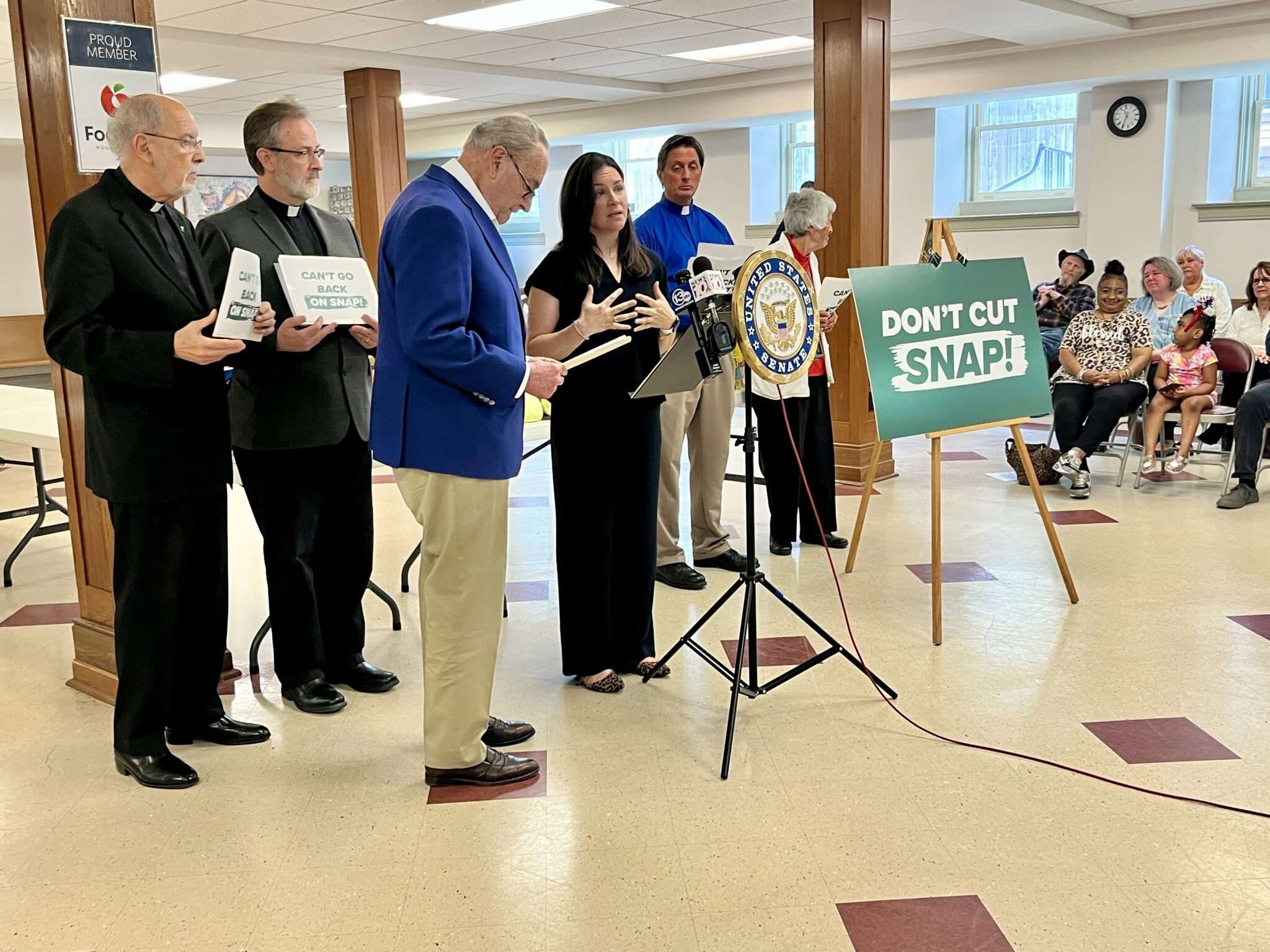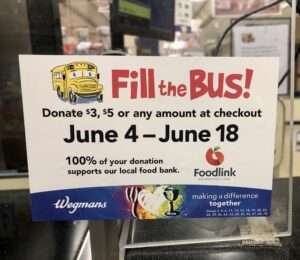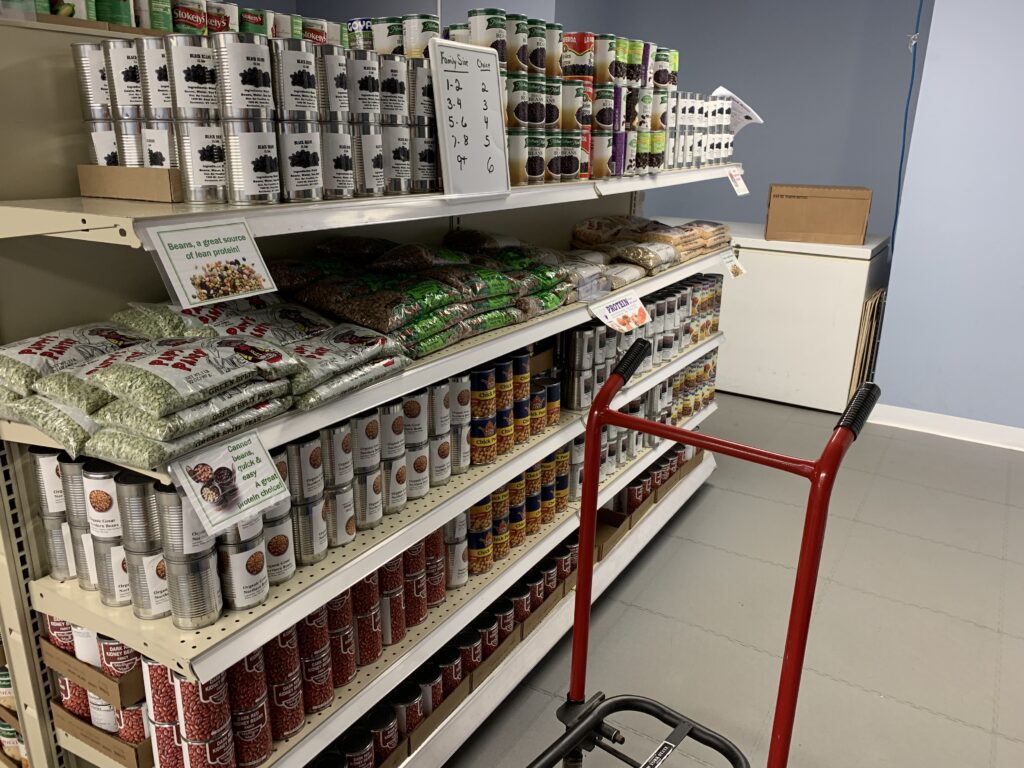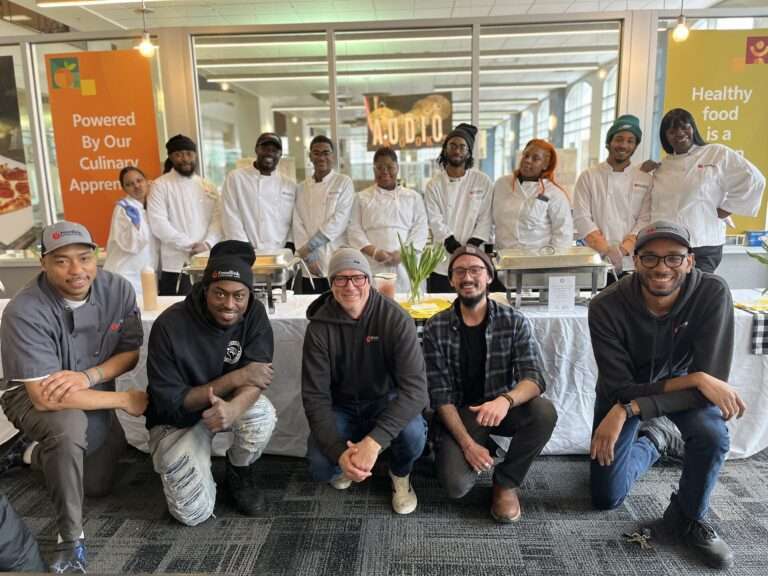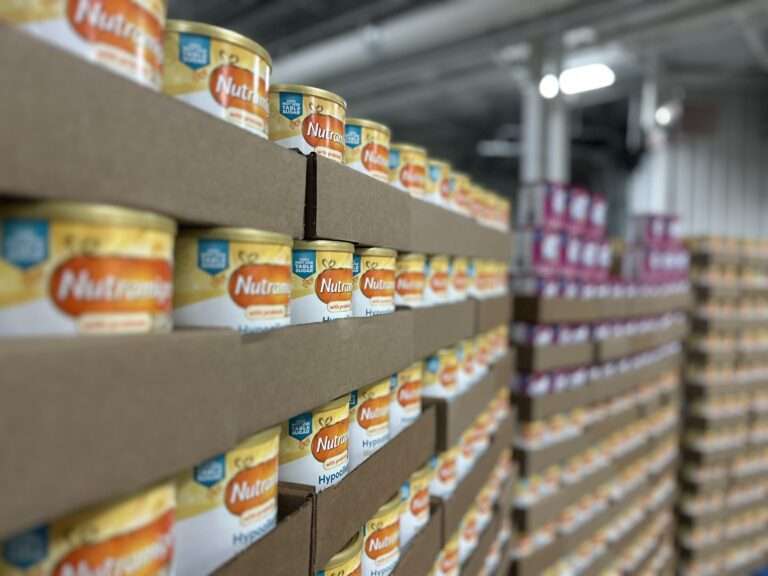Foodlink submitted the following statement to the federal registry during the USDA’s comment period on: Identifying Barriers in USDA Programs and Services; Advancing Racial Justice and Equity and Support Underserved Communities.
On behalf of Foodlink and the hundreds of thousands of New York residents we serve through our network of food banking members, we are participating in the USDA Racial Equity comment period to propose ways to identify – as Executive Order 13985 states – “potential barriers that underserved communities and individuals may face in enrollment in and access to benefits and services in federal programs.”
Foodlink is a food bank based in Rochester, N.Y. that serves 10 counties throughout the Finger Lakes region. Like many of our food-banking partners across the country, we have seen a surge in demand for emergency food – and the hundreds of member nonprofits in our network have seen first-hand the devastating toll the pandemic has had on households across our region. Food insecurity is still 10% higher than pre-pandemic levels, and Foodlink has just completed a fiscal year that saw distribution levels at an all-time high. In fact, the distribution of 25.8 million pounds of food represented a 24% increase over the year prior – another record-setting year.
During this challenging time, the federal government responded by issuing meal waivers and increasing support to federal nutrition assistance programs, which collectively helped ease the economic impact of COVID-19, and lift millions of Americans out of poverty. Simply put, removing barriers to accessing food and other basic needs has had a positive impact on households, particularly those in communities of color that have suffered disproportionately due to the pandemic.
We first would like to state that we support the comments submitted by our partners at Feeding America, which represents Foodlink and 198 other food banks across the nation. We firmly agree that the importance of SNAP cannot be understated, and we should make the program more accessible for eligible families by streamlining and expediting the application process, eliminating the drug felony ban, and engaging in SNAP outreach in immigrant communities that were negatively impacted by the prior administration’s short-lived “public charge” rule, which dissuaded many vulnerable individuals and families from applying for food assistance.
However, we would like to call attention to additional barriers impacting another critical program that provides food for millions of Americans every day – The Emergency Food Assistance Program (TEFAP). In New York State, the annual self-attestation form is an unnecessary barrier for an individual seeking assistance from a local food pantry. The act of visiting a pantry should be sufficient in demonstrating need and eligibility. At local community meal programs (e.g. soup kitchens) in our network, the USDA does not require that clients prove eligibility when receiving meals that include TEFAP products. Therefore, if the USDA in this case does not require documentation or self-attestation to demonstrate need, the requirement at a local pantry appears to be an unnecessary step in the process and a drain on limited resources for our pantry partners.
Pantries across New York appreciated the waiver that allowed for a verbal attestation in lieu of the signature requirement for the attestation form. Reverting to a required signature, however, would place an additional burden on food pantry volunteers, staff, and clients during a time when food insecurity remains high, particularly in Black and brown communities.
We commend the USDA’s commitment to racial equity, and appreciate the opportunity to comment on how we can reduce barriers to receiving food assistance across our service area. Thank you.
